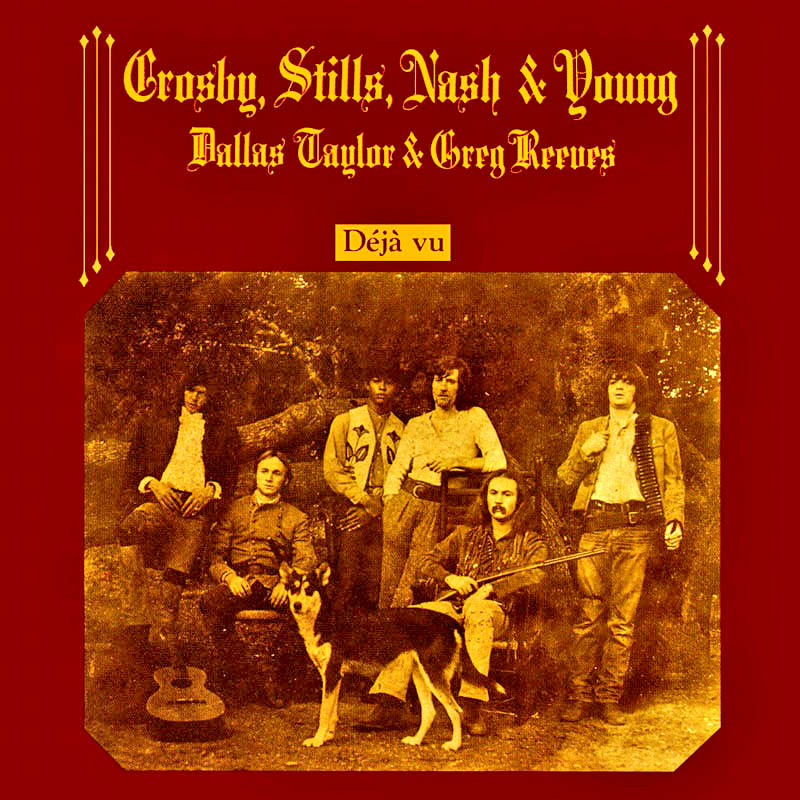Crosby, Stills, Nash, and Young in 1970 was a transformative period for the legendary supergroup, marking the apex of their collective creativity and influence. This era not only solidified their place in music history but also captured the spirit of a generation that yearned for harmony amidst chaos. As they blended their unique talents and harmonies, they produced songs that spoke to the heart of societal issues, love, and personal introspection. Their music resonated with fans and critics alike, elevating them to the status of icons.
In 1970, the band released their seminal album, "Déjà Vu," which featured a mix of folk-rock, pop, and country influences that characterized their innovative sound. The album showcased their individual songwriting talents while emphasizing their signature harmonies, creating a timeless collection of tracks. Songs like "Woodstock," "Our House," and "Teach Your Children" became anthems of a generation, encapsulating the hopes and dreams of young people during a turbulent time in American history.
The band's ability to address political and social issues through their music set them apart from their contemporaries. As they navigated personal struggles and the complexities of fame, Crosby, Stills, Nash, and Young became a voice for those seeking change and understanding. Their impact on the music scene in 1970 and beyond is still felt today, as new generations discover their music and message.
What is the Biography of Crosby, Stills, Nash, and Young?
Crosby, Stills, Nash, and Young is a supergroup formed in 1969, consisting of David Crosby, Stephen Stills, Graham Nash, and Neil Young. Each member brought their own musical background and experience to the group, creating a unique fusion of styles. Below is a brief biography and personal details of each member.
| Name | Birth Date | Instruments | Notable Works |
|---|---|---|---|
| David Crosby | August 14, 1941 | Vocals, Guitar | “If I Could Only Remember My Name” |
| Stephen Stills | January 3, 1945 | Vocals, Guitar, Keyboard | “Manassas” |
| Graham Nash | February 2, 1942 | Vocals, Guitar | “Songs for Beginners” |
| Neil Young | November 12, 1945 | Vocals, Guitar, Piano | “Harvest” |
How Did Crosby, Stills, Nash, and Young Form?
The formation of Crosby, Stills, Nash, and Young was a serendipitous event that brought together four of the most talented musicians of their time. Each member had previously achieved success in their respective bands—Crosby with The Byrds, Stills with Buffalo Springfield, Nash with The Hollies, and Young as a solo artist. The idea to collaborate came during a jam session in 1968, leading to the formation of the supergroup in 1969.
What Were the Major Releases of 1970?
In 1970, the band released their highly acclaimed album "Déjà Vu," which not only achieved commercial success but also critical acclaim. The album featured a blend of the members' individual songwriting prowess and their collaborative harmonies, making it a hallmark of the era. The tracklist included influential songs such as:
- "Carry On"
- "Teach Your Children"
- "Our House"
- "Woodstock"
What Impact Did They Have on Music in 1970?
The impact of Crosby, Stills, Nash, and Young on the music scene in 1970 was profound. Their unique sound and lyrical content resonated with listeners, addressing issues that were relevant to the youth of the time. The album "Déjà Vu" solidified their status as a supergroup and influenced countless artists who followed in their footsteps.
What Were Their Key Themes and Messages?
The key themes present in the music of Crosby, Stills, Nash, and Young included love, peace, and social justice. Their songs often reflected the tumultuous political climate of the time, with lyrics that encouraged unity and understanding. For instance, "Woodstock" celebrated the historic music festival that symbolized peace and counterculture, while "Teach Your Children" emphasized the importance of passing wisdom to future generations.
How Did Personal Struggles Influence Their Music?
Personal struggles among the members of Crosby, Stills, Nash, and Young played a significant role in shaping their music. Each member faced challenges, including addiction, relationship issues, and the pressures of fame. These experiences often served as inspiration for their songs, adding depth and authenticity to their lyrics. The honesty with which they approached their personal lives resonated with fans, making their music relatable and impactful.
What Legacy Did They Leave Behind?
The legacy of Crosby, Stills, Nash, and Young is undeniable. Their music continues to inspire and influence artists across genres, and their commitment to social change remains relevant today. The band's ability to address complex issues with empathy and grace has left an indelible mark on the music industry, ensuring their place in history as one of the most important groups of the 1970s.
How Can We Still Experience Their Music Today?
Today, fans of Crosby, Stills, Nash, and Young can experience their music through various platforms. Their albums, especially "Déjà Vu," are available on streaming services, allowing new generations to discover their timeless sound. Additionally, tribute bands and live performances continue to celebrate their legacy, keeping their spirit alive in contemporary music culture.
In conclusion, Crosby, Stills, Nash, and Young in 1970 was a pivotal moment in music history. Their innovative sound, poignant lyrics, and ability to capture the essence of a generation made them icons of their time. Through their enduring music, they continue to inspire and resonate with audiences, proving that their impact is far from over.
You Might Also Like
Exploring The Allure Of Taylor Swift's Tribeca ApartmentUnraveling The Life And Career Of Anthony Sirico
Discovering The Heart Of Community: YMCA Foxboro MA
Unmasking The Horror: The Leatherface Face Reveal
Exploring The Fascinating World Of Pinayflx
Article Recommendations
- Annette Badland
- Jessica Alba Diddy
- Karen Carney Is She Married
- P Diddy Games Unblocked
- Karrueche
- Aimee Maye
- Death Of Will Smith
- Wanya Morris
- Who Is Calvin Johnsons Wife
- Tom Hughes Partner


